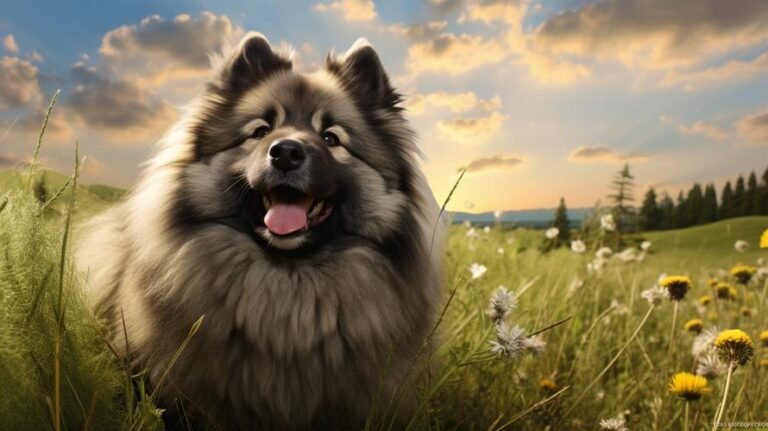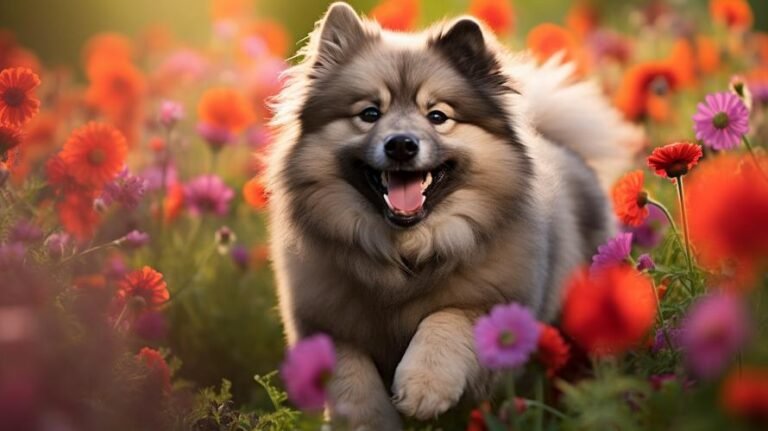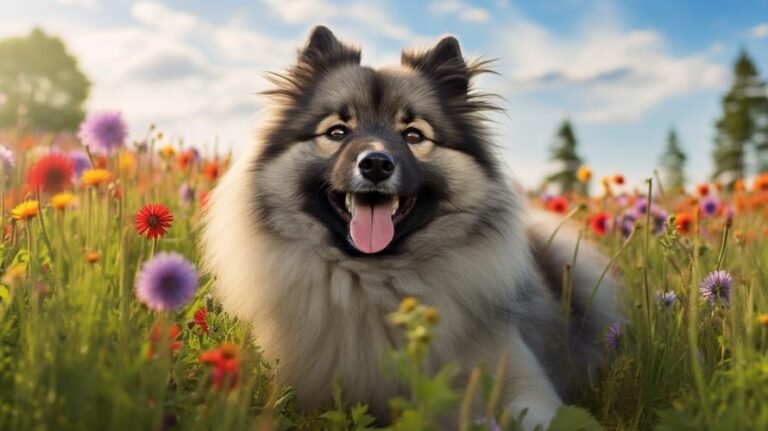Keeshonds are dogs bursting with personality. Originating from the Netherlands, these fluffy, spitz-type dogs are intelligent, loyal, and great with families. They’re known for their distinct ‘spectacles’ – a line of fur that stretches from the inner corners of their eyes to their ears. Aren’t they just unique? But let’s dive a deeper and learn something astonishing about our furry friends.
Did you know that Keeshonds might need special dog food? Just like we watch what we eat to stay healthy, our pets also need dietary monitoring to keep their unique bodies happy and hardy. So, let’s embark on this journey of discovery where we unearth the secrets of what exactly fills our lovable Keeshond’s bowl.
Keeshonds are medium-sized dogs. A full-grown adult weighs around 35-45 pounds. They are extremely active and energetic. Therefore, they need a high-protein diet to stay healthy. Protein-rich diet fuels their muscles and keeps their thick fur coat shiny. But, remember, each dog is unique. Just as we humans vary in our dietary needs right? While your neighbor might swear by a vegan diet, you might find your body reacts better to a balanced diet! You see, it’s all individual.
Now you might be wondering, can’t I just pick up any high-protein dog food off the shelf? Here’s where we get into the specifics. Keeshonds have a high risk for hip dysplasia – a condition where the hip joint’s ball and socket do not align properly. Now, that sounds painful! To help prevent this, Keeshonds need dog food which is rich not just in protein, but also has particular vitamins, minerals, and certain supplements.
Look for quality dog foods with ingredients like chondroitin and glucosamine. These two aid in maintaining joint health and could potentially prevent or manage hip dysplasia. You might also want to consider food that lists Omega-3 and Omega-6 fatty acids as these help to maintain a healthy, shiny coat, something Keeshonds are known for.
Portion control is also crucial for these furred beauties. Overfeeding can lead to obesity, making hip dysplasia worse! You must remember, just as we don’t eat a giant bowl of spaghetti every meal, dogs shouldn’t be overfed. Follow the recommendations on your chosen dog food packet. If you’re unsure about the portion size or frequency, don’t hesitate to consult a vet.
But vigilance in selecting the right dog food and maintaining portion control is only half the battle. You must also consider the age, activity level, metabolism rate, and overall health of your pet. Puppies, adults, and senior Keeshonds have different needs. Special situations such as pregnancy or illness might also require dietary adjustments.
Young Keeshonds is bursting with energy and requires food specially formulated for puppies. However, be aware of feeding them too much calcium. While it is essential for developing bones, an excess of it can lead to skeletal problems, including hip dysplasia.
Adult Keeshonds need balanced nutrition to maintain a healthy weight and sustain their energy level. Considering their hip dysplasia risk, it’s wise to continue using a food enriched with glucosamine, chondroitin, and fatty acids.
Senior Keeshonds have different needs. As they age, they may become less active, risk gaining weight, or develop health issues. A diet low in calories but rich in nutrients, particularly those that support joint health, is helpful.
Nothing wraps up a good meal like top-notch hydration! Fresh water is key, just as we wash down our meals with a drink. Keep a clean bowl of water available for your Keeshond at all times.
In conclusion, our adorable Keeshonds, although not excessively demanding with their diet, do require special attention in their food. To ensure they live a long, healthy life, they need the right balance of nutrients, supplements, portion control, and of course, love, care, and respect.
Now that you’re armed with the knowledge of your Keeshond’s dietary needs, you’re ready to make informed decisions about what fills their food bowl. Remember, a healthy Keeshond is a happy Keeshond!



